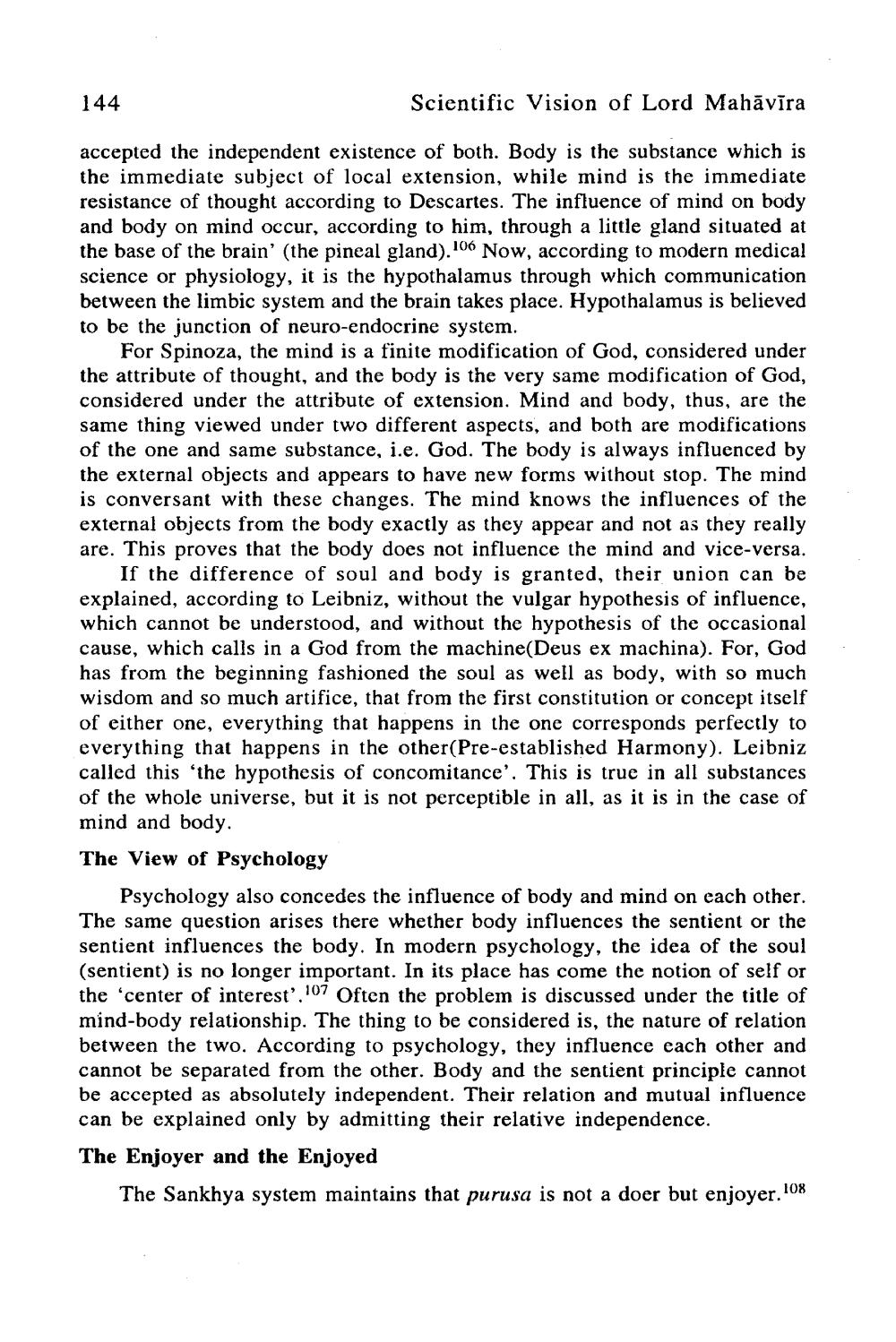________________
144
Scientific Vision of Lord Mahāvīra
accepted the independent existence of both. Body is the substance which is the immediate subject of local extension, while mind is the immediate resistance of thought according to Descartes. The influence of mind on body and body on mind occur, according to him, through a little gland situated at the base of the brain' (the pineal gland).106 Now, according to modern medical science or physiology, it is the hypothalamus through which communication between the limbic system and the brain takes place. Hypothalamus is believed to be the junction of neuro-endocrine system.
For Spinoza, the mind is a finite modification of God, considered under the attribute of thought, and the body is the very same modification of God, considered under the attribute of extension. Mind and body, thus, are the same thing viewed under two different aspects, and both are modifications of the one and same substance, i.e. God. The body is always influenced by the external objects and appears to have new forms without stop. The mind is conversant with these changes. The mind knows the influences of the external objects from the body exactly as they appear and not as they really are. This proves that the body does not influence the mind and vice-versa.
If the difference of soul and body is granted, their union can be explained, according to Leibniz, without the vulgar hypothesis of influence, which cannot be understood, and without the hypothesis of the occasional cause, which calls in a God from the machine(Deus ex machina). For, God has from the beginning fashioned the soul as well as body, with so much wisdom and so much artifice, that from the first constitution or concept itself of either one, everything that happens in the one corresponds perfectly to everything that happens in the other(Pre-established Harmony). Leibniz called this 'the hypothesis of concomitance'. This is true in all substances of the whole universe, but it is not perceptible in all, as it is in the case of mind and body. The View of Psychology
Psychology also concedes the influence of body and mind on each other. The same question arises there whether body influences the sentient or the sentient influences the body. In modern psychology, the idea of the soul (sentient) is no longer important. In its place has come the notion of self or the 'center of interest'. 107 Often the problem is discussed under the title of mind-body relationship. The thing to be considered is, the nature of relation between the two. According to psychology, they influence each other and cannot be separated from the other. Body and the sentient principle cannot be accepted as absolutely independent. Their relation and mutual influence can be explained only by admitting their relative independence. The Enjoyer and the Enjoyed
The Sankhya system maintains that purusa is not a doer but enjoyer. 108




